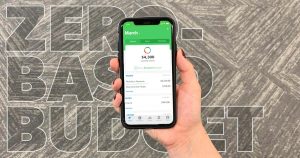MoMo Productions/Getty Images
Key takeaways
- LLC business loan document requirements are similar to those of other types of business loans
- Lender and loan type determine the type of documentation needed
- You’ll need documentation about yourself and your business finances, including tax returns and debt schedules
Limited liability companies (LLCs) are a business structure that provides the owner with legal protection, separating the business from personal assets and risk. Because the documents needed for LLC establishment are limited and managing the company is fairly simple, it’s a popular choice for small business owners.
Those owners often seek out loans to support their companies. As they start the LLC loan shopping process, business owners can also start gathering the documentation they’ll need to apply for loans. Be aware that different types of LLC loans and different lenders often have differing documentation requirements. There are still some requirements that broadly apply, though.
So, what documents are needed for LLC loans? We’ve gathered up LLC required documents into general categories to help you prepare.
Documents needed for LLC business loans
We’re talking about the documents needed for LLC loans here but be advised that these don’t really differ depending on your entity type. The documentation to get a loan as a C-corp or S-corp, for example, won’t necessarily be different from an LLC’s required documents.
For any small business loan — including alternative options like business lines of credit — you’ll generally need to provide documentation in three different categories:
Documents about yourself
Lenders often want to see substantial information about your personal finances before approving you for a loan. The reason is that your personal finances can give lenders a window into how you will handle finances for your business. Be prepared to provide:
- Your name
- Your address (and, if different, your business address)
- Your Social Security number
- Your date of birth
- Personal bank statements
- Personal tax returns
Documents about your business
Lenders want to know if your business can afford to repay your loan and is stable. They also want to make sure you’re actually the owner. To prove all of that, collect:
- Business bank statements
- Business tax returns for the last three years, if available
- Receipts from quarterly tax payments
- Profit and loss statements, plus other cash flow documentation
- Business tax ID number or EIN, which acts much like a Social Security number for businesses. (if you don’t already have one, you can apply for one online through the IRS).
- Business licenses and permits, if applicable
- Foundational documents, including articles of organization
- Business lease information, if this applies
- Outstanding invoices, especially if you’re applying for invoice factoring or financing
- Business debt schedule
Documents for SBA LLC loans
U.S. Small Business Administration-backed loans are designed to improve access to capital, supporting growth and recovery for small businesses that don’t qualify for other financing. The SBA works with approved lenders to back the loans. As a result, these loans typically require additional documentation not required with conventional loans, including SBA-issued forms. In addition to the documents needed for LLC loans that we’ve already outlined, borrowers should also be prepared to provide:
- Information about how much you need and how an SBA loan will help the business
- Projected financial statements and/or a financial plan for the future
- SBA forms, which vary by loan type (for example, 7(a) loans require Form 1919 and Form 413) and can be downloaded from the SBA’s website
Other documents needed for LLC loans
You may not have to submit all the documents we’re outlining here — check with your lender if you’re unsure. But depending on the type of business loan you apply for, your lender may add to the list of documents needed for an LLC seeking financing. Those add-on LLC required documents could include:
- Details on any business collateral: If you’re applying for a secured loan, you’ll need to provide documentation about the collateral you’re putting up. These may include vehicle titles, real estate documents, equipment information and bank account statements. Be prepared to provide appraisal information to substantiate the value of your assets.
- Your business plan: It’s risky to finance a small business, so lenders may want to better understand your business’s place in the market, chances of survival and ability to repay the loan.
- Your loan proposal: This document will discuss why you need funding, how funding will help your business and what you plan to use the funds for.
Where to find an LLC business loan
Now that you have a handle on the documents needed for LLC business loan applications, you can start the application process. You can explore getting a loan from traditional banks and credit unions, online business lenders and lenders who offer loans backed by the SBA. Each lender will offer different benefits and features.
Bank lenders tend to offer the lowest interest rates, but may require high revenue and strong credit. Online lenders can offer fast financing with lenient eligibility requirements, but you may pay a higher loan cost than with other loans. And SBA lenders offer SBA loans with competitive rates and long terms, but you will need to be patient since the loan application process takes longer.
Experts recommend choosing at least a few lenders and applying with each of them. This lets you see the details of your potential loan options so you can make sure you’re getting the best deal.
Again, you won’t be seeking out LLC loans specifically. Instead, you should look at small business loans in general. Getting an LLC loan means choosing the right small business lender that offers the loan type you need with a competitive interest rate.
Bankrate insight
Bottom line
In many cases, LLC loans will require the same documentation as other business loans. Your LLC’s required documents will vary depending on your lender — traditional lenders often have more extensive requirements than online ones, for example.
Before applying, make sure that you research multiple lenders to find the best deal on your LLC loan. As you narrow down your lender options, make sure you’re doing so with a long-term plan in mind. You should only take out an LLC loan if you’re confident you can manage it. That way you can keep your business running smoothly and build positive business credit as you make business loan repayments.
Frequently asked questions
-
Common documents to include with a business loan request are your business plan, financial statements, tax returns, personal financial information and collateral details.
-
An LLC can get a business loan by reviewing the business’s qualifications and needs to determine the best loan type and find a lender. Next, an application and documentation can be submitted, and then the lender can evaluate the application and approve or deny the loan request.
-
Yes, an LLC has its own credit score, which is a business credit score. This business credit score is separate from the personal credit score of the business’s owner, though a lender may evaluate both when approving a loan.
Read the full article here










